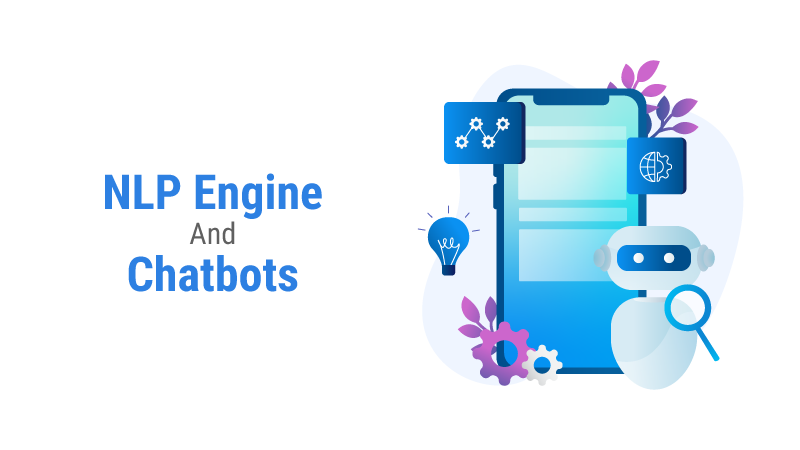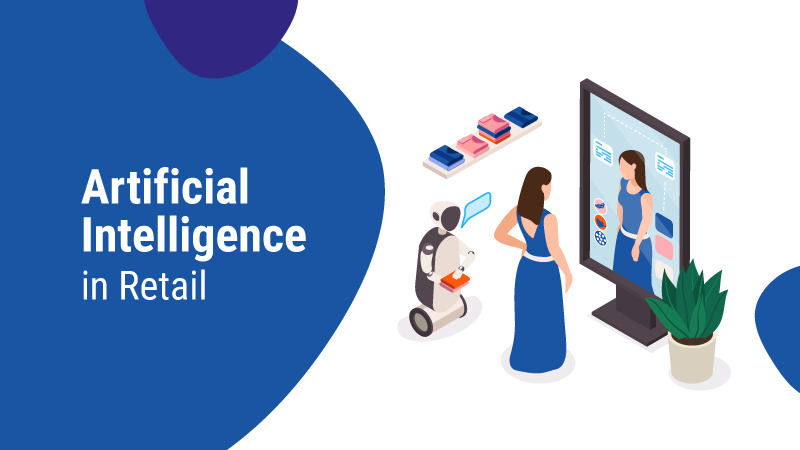NLP Engines and Chatbots: Enhancing Conversational Experiences

Natural Learning Processing (NLP) is a critical aspect of chatbots and is the key element that comprehends the input given by the users at any point in time and translates it into a structured format that the system can process. Chatbot NLP engines include modern machine learning algorithms that identify the language of the users and match them with the list of functions the chatbot supports. NLP engines use either limited automation models or deep learning methods to read, analyze, and understand what users say. Finding the right NLP engine is very much integral to determining the success of the chatbot.
Why NLP Chatbot?
Chatbots are becoming more and more common and are a potent tool for keeping online visitors engaged by communicating with them through their natural language. Previously, there were live chats on websites where agents would chat with online visitors and respond to their queries. But when websites get high traffic, it is now an outdated and costly strategy to hire agents who interact with customers 24/7 live. It is a huge liability and takes a lot of time and resources for businesses to train and pay the agents. Chatbots can resolve the problem by being active all the time and interacting with website visitors without any human assistance or intervention. Natural Language Processing and other machine learning technologies increase the efficiency of chatbots by making most conversations easier without human intervention.
NLP engine and chatbots
When it comes to chatbot automation, what’s more crucial is deciding on the chatbot architecture. Similarly, opting for the right NLP engine is also important as it is mainly based on the preferences and objectives of the organization. Developers and businesses are often confused about choosing an NLP engine. The decision to choose between cloud and in-house is something that influences the characteristics your business requires. You can build an engine of your own if what your business needs is a chatbot that is a highly capable one with high security and custom dialog features. In certain situations, in-house NLP engines offer mature natural language comprehension components, while cloud providers are comparatively weak in dialog management.
If you want to have contextual chat, in-house chatbots can be even more useful. For instance, if customers have to ask a certain question such as “give the details of the red product”. Chatbots will not be able to understand what the “red product” is from the database. Here the context is very important, and these situations are dynamic. In such situations, cloud-based providers may not be appropriate because they are developed for the target market use cases and this is where in-house NLP engines serve value.
Here are some reasons why chatbots should have NLP:
To overcome the challenges of language variations
The main issue with the method of pre-fed static content is that languages show a boundless number of variations while expressing certain statements. There are uncountable ways through which a user can produce a statement to show emotion. A lot of efforts have been taken by researchers to make the systems comprehend the language used by human beings. Making a connection between an input message from a human being and a response generated by the system is easy and practical with the help of NLP. Responses may include an answer to a query or a customer request-based activity. NLP is capable of distinguishing various types of requests generated by a human being and thus improving customer experience.
To change focus on more relevant tasks
Usually, a lot of roles and resources are deployed to enable an organization to function, anyhow, it results in the repetition of manual tasks throughout multiple verticals such as customer service, invoice processing, human resources, Insurance, and catalog management. Natural Language Processing-induced chatbots significantly minimize human effort in many manual activities such as customer service or invoice processing, so these activities need lesser resources along with efficient employees.
This helps employees to concentrate on crucial tasks that have a positive influence on business in a creative way, rather than wasting time on repetitive tasks that tire of each day. NLP-based chatbots can be used for internal purposes as well specifically for human resources and IT helpdesks.
Increase profitability with reduced costs
Cost is an integral aspect when it comes to the growth of a business and business profit maximization. As efficiency improves and workflows become more efficient, NLP-based chatbots can dramatically reduce the cost of human resources and other resources associated with monotonous tasks, along with customer retention costs.
Increased customer satisfaction due to efficient systems
The generations today need a sudden response and immediate solution to their questions. NLP allows chatbots to learn, analyze, and prioritize queries based on their complexity and allows bots to give more rapid solutions or responses to customer queries than human workers. Quicker responses help build the trust of the consumer and then more business. You may feel that the customer retention rate has increased once the chatbot has been implemented. This minimizes the effort and cost of gaining new customers by developing the loyalty of prevailing ones each time. Chatbots provide customers with sufficient time and attention they need, thus making them feel valued.
To conduct Market Research and Analysis to make impactful business decisions
It is possible for you to get or create a significant amount of flexible and unstructured content from social media. NLP allows you to create unstructured content and find meaning in it. NLP also makes it easy to understand the meaning or concept behind reviews, comments, or queries by consumers along with a glimpse of customers’ feelings towards your services or brand.
Wrap Up
Chatbots based on NLP will help you improve customer experience and take your business processes to a greater extent while contributing a lot to development and profitability. It offers technological innovations to keep the market competitive in terms of time, effort, and expense, which in turn enhances customer satisfaction and leads to greater engagement in your business.
Get Started with our AI ServicesBlogs by Category
AppForms Artificial Intelligence Blockchain Call Centers Chatbots Cloud Computing Data Management Design Digital Marketing Digital Transformation Enterprise Applications FinTech Insights LowCode Development Microsoft Mobile Apps News Office 365 Robotic Process Automation Security SharePoint Software Development Web ApplicationArtificial Intelligence in Retail

2024-05-23 14:12:28